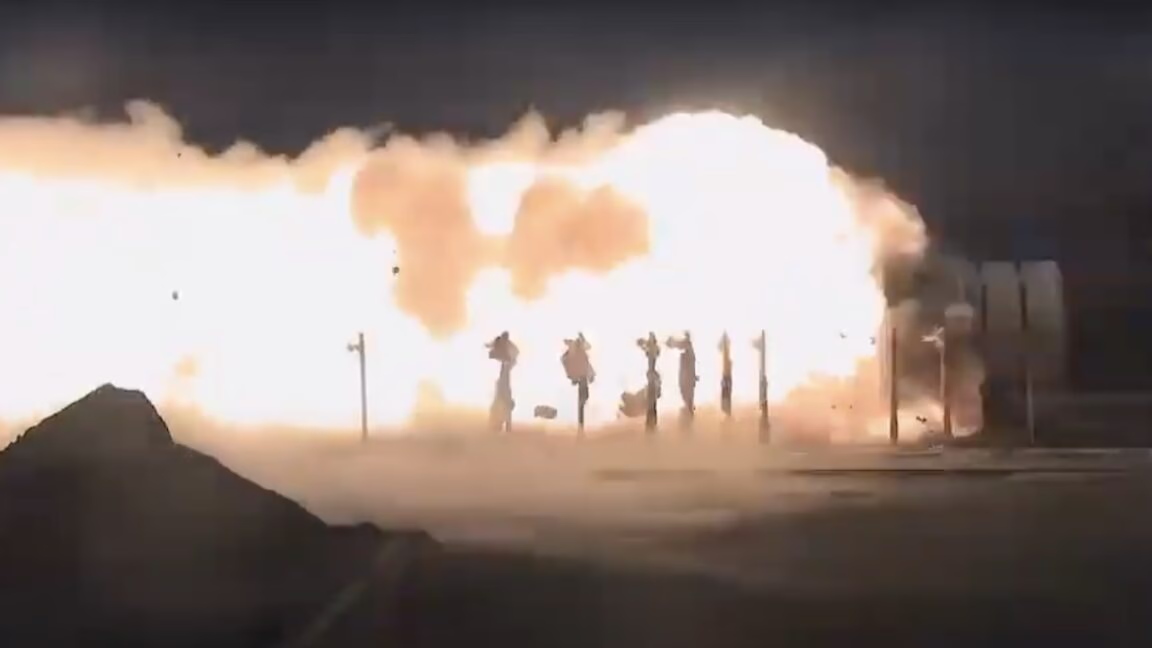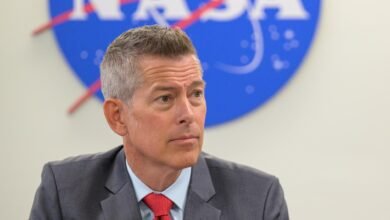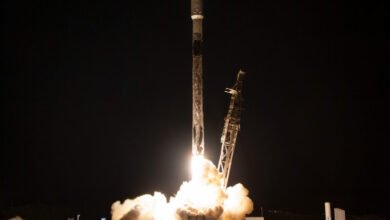NASA’s SLS Booster Test Ends Dramatically – May Never Fly

▼ Summary
– NASA’s Space Launch System (SLS) may be canceled after three launches by the Trump administration, though Congress proposes extending it to five flights.
– The SLS is unlikely to reach nine flights, and if it does, it may not happen before 2040, despite being central to NASA’s Artemis Moon mission plans.
– NASA recently tested a new RS-25 engine for the SLS, the first since the Space Shuttle program, assigned to the Artemis V mission.
– A new solid rocket booster design for potential use on the ninth SLS mission (Artemis IX) was tested, though the test unit isn’t flight-ready.
– The solid rocket booster test experienced a failure when its exhaust nozzle shattered during the burn, unlike the successful RS-25 engine test.
NASA’s ambitious Space Launch System (SLS) program faces growing uncertainty as political and technical challenges threaten its future. The rocket, designed to propel astronauts back to the Moon under the Artemis initiative, may never achieve its full flight potential due to shifting priorities and recent test anomalies.
Recent developments highlight the program’s precarious position. The current administration has proposed limiting SLS to just three launches, while congressional discussions suggest extending that to five. Even if approved, reaching the projected nine flights seems unlikely before 2040, if at all. The SLS was intended as NASA’s flagship deep-space rocket, but rising costs and the emergence of commercial alternatives have cast doubt on its long-term viability.
Testing setbacks have further complicated matters. Last week, NASA successfully fired a newly manufactured RS-25 engine at Stennis Space Center, marking the first such test since the Space Shuttle era. This engine is slated for Artemis V, demonstrating progress in sustaining the program. However, a subsequent ground test of a solid rocket booster in Utah ended dramatically when the nozzle disintegrated mid-burn, scattering debris in a fiery spectacle.
The booster in question was a non-flight prototype, meant to validate performance for future Artemis IX missions. While such tests often uncover flaws, the severity of this failure raises concerns about design reliability. Engineers will analyze the data, but the incident underscores the technical hurdles still facing SLS development.
With political winds shifting toward commercial space solutions and persistent technical challenges, the SLS program stands at a crossroads. Whether it survives long enough to fulfill its lunar ambitions remains an open question. For now, NASA continues pushing forward, but each test, successful or not, highlights the complex realities of deep-space exploration.
(Source: Ars Technica)







